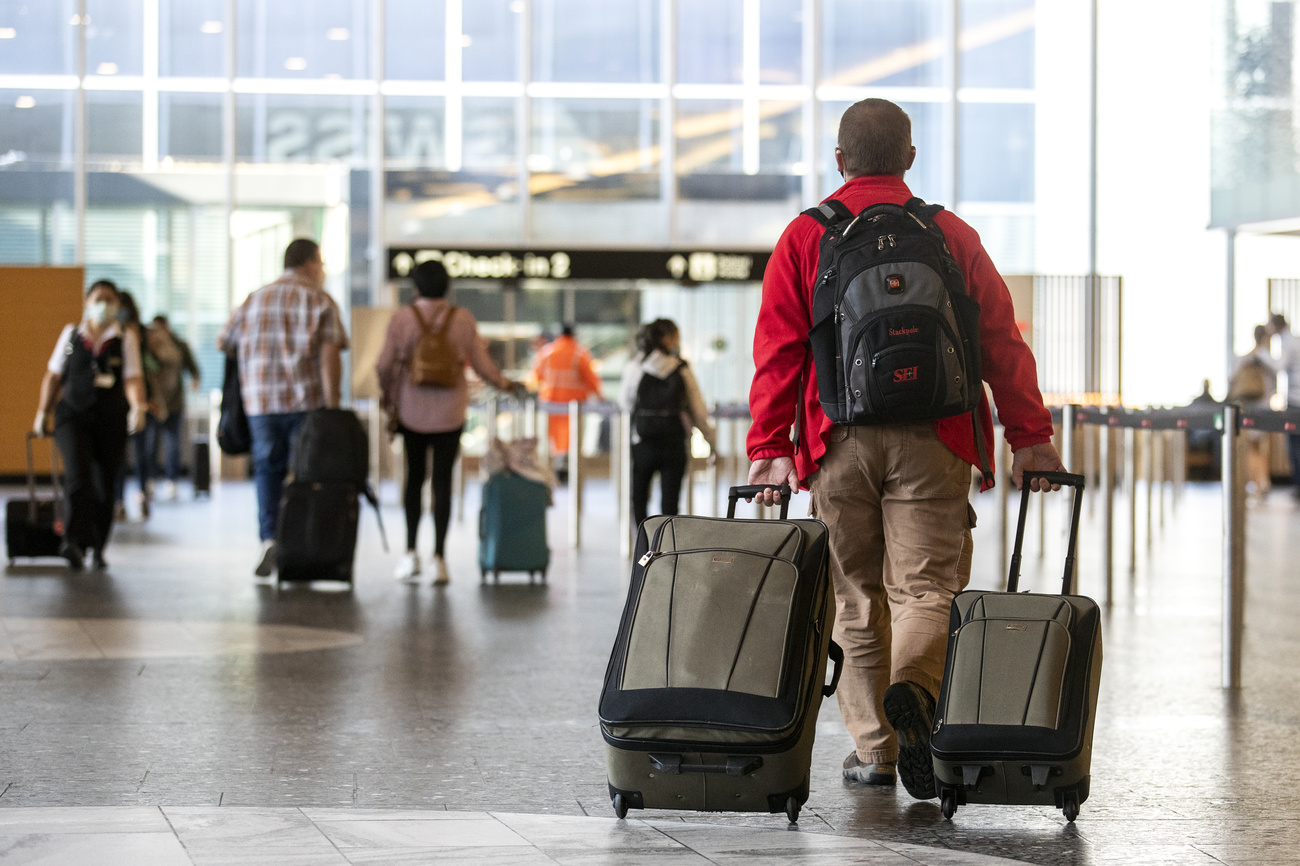
Switzerland to launch Covid certificates from June 7

Switzerland will start issuing forgery-proof “Covid-19 certificates” next Monday to people who have been vaccinated, tested negative or who have recovered from an infection.
The cantons will start making available the first Covid certificates – on paper or in digital form – from next week. They should be available throughout Switzerland by the end of June, the Federal Council said in a statementExternal link on Friday. Canton Bern has been chosen as a first test canton.
To receive the free certificate Swiss residents must go to a pharmacy, doctor’s surgery, hospital or vaccination centre where staff can generate a digital QR code on a computer that confirms their status – either vaccinated, recovered from the virus or having proof of a recent negative PCR test.
The forgery-proof QR code containing this information and other relevant personal details is then either printed out or transferred to the Covid Certificate smartphone app, which can be downloaded at Google and Apple app stores. It will feature an electronic signature of the Confederation.
The certificate is not mandatory, but the Swiss authorities say it can help the country and its population come out of the Covid crisis. Various different practical usesExternal link of the certificate have been identified for the current relaxation phase of the pandemic. The document will most likely be important for making foreign travel easier. Currently visits abroad are complicated by mandatory anti-Covid tests and quarantine regulations. The Swiss digital Covid certificate is compatible with the EU certificate, the government said.

More
Coronavirus: the situation in Switzerland
“The goal of the certificate is to create freedom of movement. Travel within [Europe’s] Schengen zone will be made easier. Details regarding the domestic regulations [for the certificate] still have to be discussed,” Swiss Finance Minister Ueli Maurer told reporters in Bern on Friday.
Such a certificate may also be necessary over the next few months to attend nightclubs and large events, thus gradually lifting restrictions for access to stadiums and concert halls. However, it will not be necessary at private and religious events, on public transport, in shops, at the workplace or in schools.
The government says the certificate fully respects data protection issues. When verifying a QR code, the person checking it will see an individual’s name, surname, date of birth and the validity of the certificate. No data is transmitted or stored during the verification process. Personal data is not stored by the federal authorities.
In recent weeks, Switzerland has further relaxed its Covid-19 restrictions as infection rates continue to fall and the vaccination rollout accelerates across the country. As of May 31, restrictions have been further eased: restaurants can open indoor and outdoor areas, the requirement to work from home has been downgraded to a recommendation, and attendance at public events has been expanded to 100 people indoors and 300 outdoors.

More
Covid certificate planned for temporary period only

In compliance with the JTI standards
More: SWI swissinfo.ch certified by the Journalism Trust Initiative





























You can find an overview of ongoing debates with our journalists here . Please join us!
If you want to start a conversation about a topic raised in this article or want to report factual errors, email us at english@swissinfo.ch.